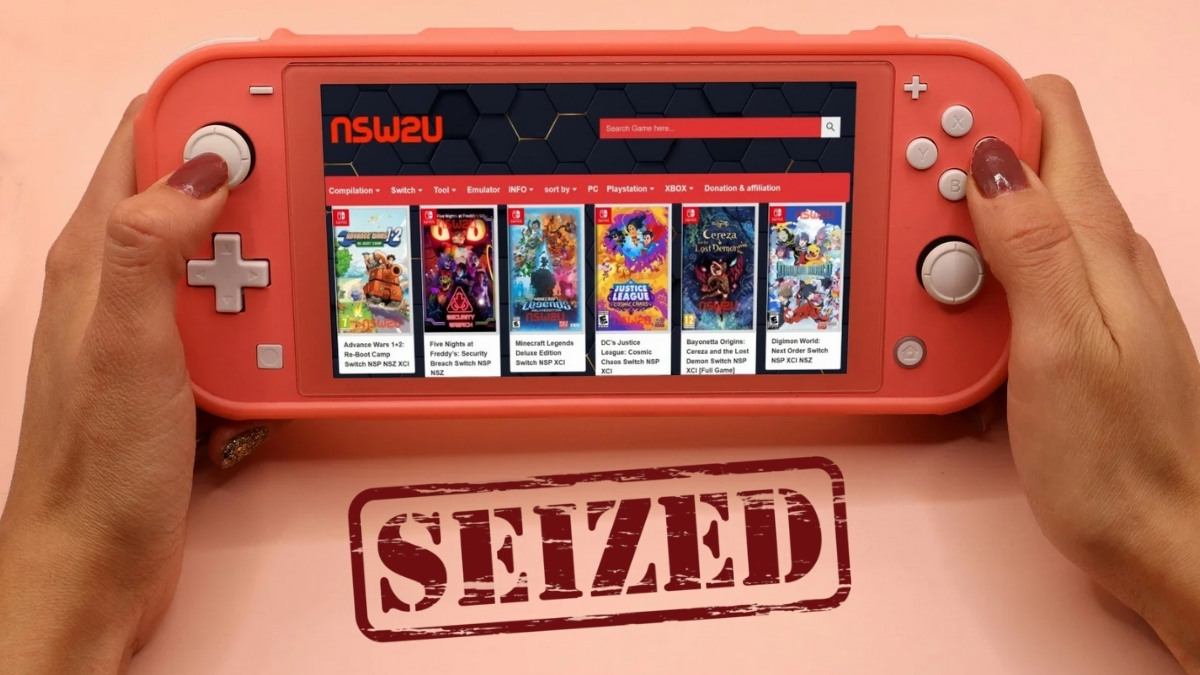FBI Seizes Nintendo Switch Piracy Website NSW2U in Global Operation

On July 10, 2025, the Federal Bureau of Investigation officially seized the domain of NSW2U.com, a website widely known for hosting pirated Nintendo Switch game files. The seizure was carried out under a warrant issued pursuant to Title 18, United States Code, Section 2323, by the United States District Court for the Northern District of Georgia. The FBI confirmed that the operation was conducted in coordination with the Fiscal Information and Investigation Service (FIOD), a Dutch agency responsible for investigating financial crimes.
The seizure notice now visible on NSW2U.com states, “This domain has been seized by the Federal Bureau of Investigation… as part of a law enforcement operation and action by the Federal Bureau of Investigation [and] Fiscal Information and Investigation Service.” The involvement of FIOD suggests connections to the Netherlands, although no further details about the site’s operators or infrastructure have been provided at this time.
NSW2U.com was one of several sites dismantled in this coordinated effort. Other domains seized include nswdl.com, game-2u.com, bigngame.com, ps4pkg.com, ps4pkg.net, and mgnetu.com. According to a statement released by the FBI’s Atlanta Field Office, these websites collectively functioned as online criminal marketplaces distributing pirated copies of popular video games. The FBI stated that for more than four years, the sites made pirated versions of games available, often days or weeks before their official release.
Between February 28, 2025, and May 28, 2025, data gathered by the FBI showed that 3.2 million downloads occurred on these sites via their most-used download service. The FBI estimated that the downloads resulted in a loss of $170 million, and the agency added it had dismantled the infrastructure of the affected websites and now controls the domains, which all redirect to seizure banners displaying the federal notice.
NSW2U had been added to the European Union’s piracy blacklist in May 2025, prompting various European countries to block access to the site prior to the seizure. Despite that, the site continued operating and offering pirated game files until it was taken offline by authorities. According to Nintendo Life, users were still able to download files from NSW2U just hours before the seizure occurred.
Nintendo has previously taken legal and technical steps to address video game piracy. In 2023, the company targeted the creators of the Yuzu emulator. The emulator allowed users to run Nintendo Switch games on non-Nintendo devices, including PCs and the Steam Deck.
With the launch of the Nintendo Switch 2 console in June 2025, Nintendo implemented additional anti-piracy features. Reports indicate that the company has blocked devices using flashcard hardware from accessing key system functions and online services, which effectively render the consoles inoperable for their intended use, a process commonly referred to as “bricking.” One unnamed Brazilian consumer authority has launched a legal challenge, arguing that this measure may affect second-hand users who unknowingly purchase modified consoles.
In previous years, Nintendo titles have also drawn attention to mechanics that simulate gambling. For example, earlier entries in the Pokémon series included a gambling mini-game called the “Game Corner,” which allowed players to use in-game currency to operate slot-machine-style games; it was later removed from European releases. When classic Pokémon games were re-released digitally for the Nintendo 3DS in 2016, the Pan European Game Information (PEGI) rating board assigned a 12+ rating, citing the presence of simulated gambling. Additionally, in 2009, the European version of Pokémon Platinum replaced interactive slot machines with passive game machines.
In a related industry development, Nintendo, along with Sony and Microsoft, committed in 2019 to disclose the odds of in-game purchases involving random items, following discussions with the Federal Trade Commission (FTC). This policy applied to new games released on their platforms and was intended to increase transparency around randomized reward systems, often referred to as “loot boxes.” Nintendo has since incorporated parental control features through its Nintendo Switch Online services to help manage and limit access to these mechanics.
As of now, there have been no announcements of criminal charges against the individuals responsible for operating NSW2U.com or the related domains. The FBI stated that the investigation is ongoing.
